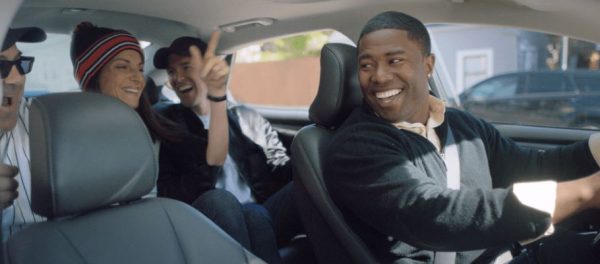Last week, California made history with the passage of a monumental bill that could very well transform the “gig economy” as we’ve known it. The California law, called Assembly Bill 5 (AB5), would make California the first state to mandate that app-based companies like Uber and Lyft treat their workers as employees rather than classify them as independent contractors.
Since their inception, rideshare companies have avoided having to adhere to minimum wage laws or providing their drivers with basic benefits. AB5 will classify drivers as employees of the rideshare business – not independent contractors -making them eligible for minimum wage, health care benefits, workers’ compensation, and other protections.
This independent contractor distinction has allowed ridesharing companies to skirt not only existing employment laws but also deny liability when their drivers are involved in an accident. For example, back in 2014, Uber denied responsibility when a driver struck and killed a young girl in San Francisco. In this case, Uber’s defense was the driver was between rides and therefore Uber couldn’t be held liable for the victim’s death.
However, since this particular accident, Uber has restructured its third party insurance coverage (which pays up to $1 million in under/uninsured motorist and liability coverages) to include drivers involved in accidents while signed on to the app – even if they’re not currently carrying passengers at the time. And rideshare companies do use this insurance quite often to indemnify passengers injured in accidents where their driver was at fault.
But, again, it’s that independent contractor categorization these companies cling to when denying liability for the actions or misconduct of their drivers. This has made accidents involving Uber and Lyft cars quite the gray area legally. There have been many incidents where the companies have denied liability for a case due to the status of the driver at the time of the accident.
It remains to be seen how this law, if it goes into effect, changes things from an accident claims perspective. One would think, since rideshare businesses don’t own the vehicles their drivers use, the app sign-in requirements would still be in place.
Uber & Lyft Both Say They Aren’t Reclassifying Drivers as Employees
Uber and Lyft vow to go on with business as usual and has no plans to reclassify its drivers. Their official stance is they’re not a transportation company but instead a technology company. Their drivers and riders are connected via an app they provide. To them, the app is their business, not transporting passengers. They’re a link for riders to find a driver who is operating an independent taxi-like business. The driver and their vehicle are free from company control.
Uber and Lyft, which have generated billions off the labor of its drivers without the expense of treating them as employees, do not want their business model disrupted. They and similar app-based companies have pledged millions of dollars towards a legal fight. They’ve also amped up their lobbying of lawmakers to get this initiative on the ballot as a referendum or exempt their companies from the law.
A Lyft representative was quoted as saying to C-Net, “Today, our state’s political leadership missed an important opportunity to support the overwhelming majority of rideshare drivers who want a thoughtful solution that balances flexibility with an earnings standard and benefits.”
The Lyft representative added, seemingly alluding to pushing for a ballot referendum, “The fact that there were more than 50 industries carved out of AB5 is very telling. We are fully prepared to take this issue to the voters of California to preserve the freedom and access drivers and riders want and need.”
Uber, in a pubic document earlier this year, stated “We believe that drivers are independent contractors because, among other things, they can choose whether, when, and where to provide services on our platform, are free to provide services on our competitors’ platforms, and provide a vehicle to perform services on our platform. Nevertheless, we may not be successful in defending the independent contractor status of drivers in some or all jurisdictions. Furthermore, the costs associated with defending, settling, or resolving pending and future lawsuits (including demands for arbitration) relating to the independent contractor status of drivers could be material to our business.”
Opinions of Uber & Lyft Drivers Are Mixed
While many drivers have passionately fought for employee status and benefits, many other drivers aren’t thrilled about losing their independent contractor status. Mainly out of fear it will lead to designated shifts and an end to a flexible work schedule. One in which they can literally log in and accept rides at any time of the day or night convenient to them. Another concern is drivers will no longer be able to simultaneously work other gig economy-based apps like DoorDash, Postmates, etc.
As of now, the law is set to go into effect in January of 2020.
TALK TO AN UBER & LYFT ACCIDENT ATTORNEY IN LOS ANGELES
As you can see, accidents involving rideshare cars continue to be a sticky area of the law. That doesn’t change the fact that you can and should receive fair compensation for your injuries. To get the settlement you deserve, you’ll just need the help of a car accident attorney who handles Lyft and Uber accidents in your area.
For help from a Lyft and Uber accident lawyer in the Los Angeles area, contact the law offices of M.R. Parker Law, PC at (818) 334-5711. We provide a free consultation and can take most cases on a contigency-fee basis, which means you don’t pay us any fees until we get money for you.



